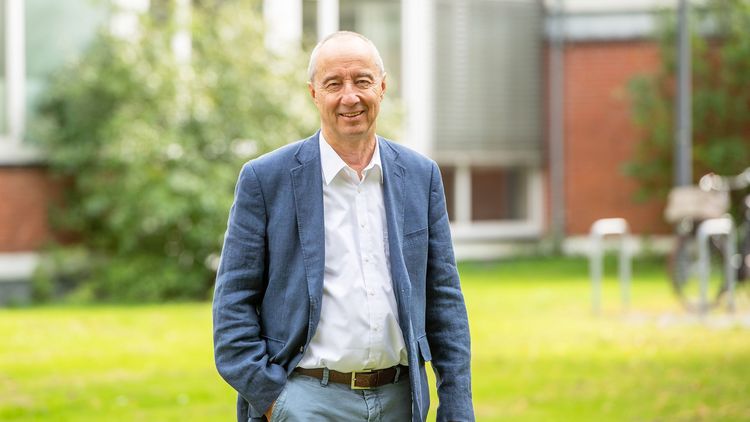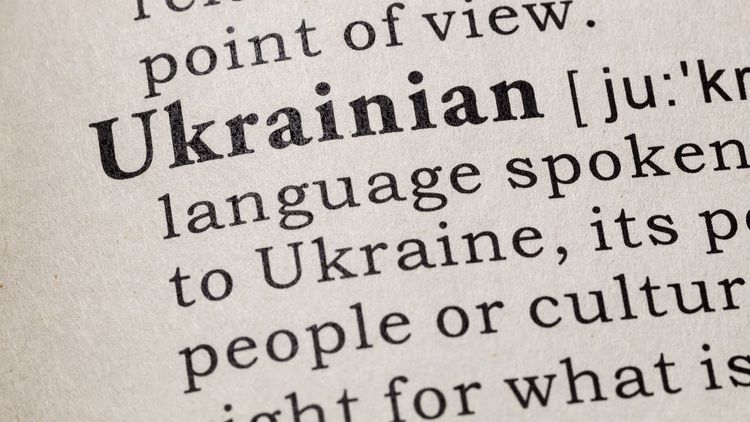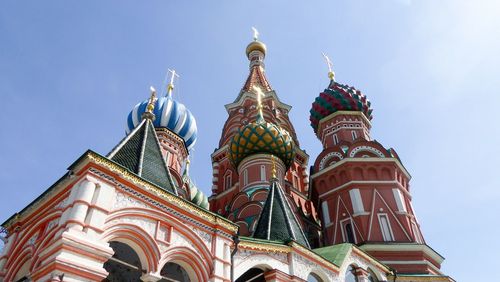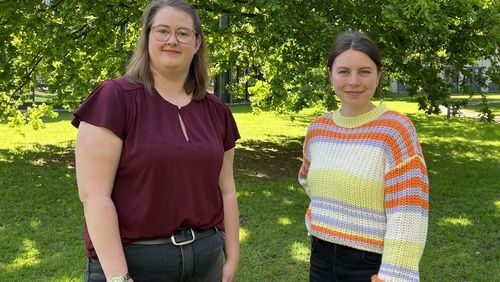In this op-ed, Gerd Hentschel, a Slavicist at the University of Oldenburg, provides insights on Ukrainian identity. Since the annexation of Crimea in 2014 he has conducted several research projects on the self-identity of the Ukrainian population – in particular in relation to Russia.
Since February 24th, Ukrainians in Germany have heard many words of sympathy and even apology from Russians in their milieu for what Russia's rulers in the Kremlin are doing to Ukraine and its people. Russians often express their sympathy with words like, "We are one people, after all". One of my colleagues at the Institute for Slavic Studies, who has heard this several times now has said that these words triggered above all a sense of indignation and harsh rejection in her, especially in the early days of the invasion, because the claim that Russians and Ukrainians are "one people" is part of Vladimir Putin's repertoire. He uses this alleged diffuse "ethnic-national" shared identity as an argument for a political union of Ukraine and Belarus with Russia, which would certainly be centrally controlled by Moscow, whatever concrete form this union may take.
This attitude is widespread in Russia, as Russian writer Lyudmila Ulitskaya notes in the March 3rd edition of the Frankfurter Allgemeine Zeitung. Even the Russian author Alexander Solzhenitsyn, who died in 2008 and was a respected dissident in the West, spoke out vehemently in favour of a “All-Russian” union encompassing Russians, Belarusians and Ukrainians, in view of the collapse of the Soviet Union. But he also said clearly: "Should the Ukrainian people really decide to secede [from Russia], nobody would dare to try and keep them by force." Despite his arguments for a union, several of which also feature in Putin's distorted historical account of recent weeks, Solzhenitsyn granted Ukrainians both the status of a separate "people" ("narod") and the right to be an independent state. Today, a dictatorial Russia wants to destroy both by force.
Insights on the Ukrainians' self-identity
But what do the Ukrainians themselves think about this? Three research projects at the University of Oldenburg provide insights here. The data stems from a survey carried out in central Ukraine in 2014, soon after the annexation of Crimea, and a second survey carried out in 2020 and 2021 in the three oblasts (administrative regions) on the Black Sea coast. These studies include the data of a total of 2,600 randomly selected respondents.
Our work on central and southern Ukraine produced the following results: between eight and nine out of ten respondents see themselves as members of a separate Ukrainian people, with no significant variations from region to region. However, between one and three out of ten respondents describe this independence as not "unrestricted". Respondents in areas close to the Russian border and in places like Kherson Oblast, just north of Crimea, were somewhat more likely to take this view. The answers to the slightly different question of whether one can be Ukrainian and Russian at the same time are less clear. In some areas, up to half, but at least one-fifth of the respondents indicated that they considered this possible. This is indicative of the traditionally stronger pro-Russian orientation of the populations in the south and to the east of central Ukraine, and of their closer contact with nearby Russia, in comparison with people from those areas of the country that lie further to the west.
Differences between urban and rural populations
Taking a look at the culture, in some oblasts only half of the respondents see a difference between Ukrainian and Russian culture – for instance those on the Black Sea coast and in the more rural oblasts in the north and centre of Ukraine. In other, more urban areas such as around Kharkiv and Dnipro, by contrast, almost three-quarters of respondents see a difference.
Do the respondents consider themselves in the end Ukrainian, Russian, or both – and to what degree? The answers are complex, but certain trends can be highlighted: the majority of respondents – between half and over four-fifths – identify themselves as wholly Ukrainian and generally as not at all Russian, more rarely as "not really" Russian. In 2014, despite the annexation of Crimea, many respondents still spoke of "three brother nations". This was hardly to be heard in the 2020/2021 surveys. Some older Ukrainians who grew up in the Soviet Union said that it was Putin who had turned them into Ukrainians.
The desire to be an independent state
On the question of the sovereignty of the Ukrainian state, a clear majority in all oblasts reject Solzhenitsyn's vision, now adopted by Putin, of the country entering a state union with Belarus and Russia. Only between five and 25 percent said they could agree to such a union, and if so only with restrictions rather than unconditionally. This was also the case in the traditionally more pro-Russian oblasts, such as Kharkiv and the three oblasts on the Black Sea. In several interviews with citizens in Kharkiv before the invasion, German TV outlets had conveyed the impression of a willingness to unite with Russia.
Today, after several weeks of a war that has claimed thousands of victims, the rejection of such a state union would doubtless be far stronger. The ethnic-national demarcation between Ukrainians and Russia is without doubt even clearer today.
The beginning of enmity?
If large sections of the Russian population were nevertheless to remain convinced that "we are one people" and prefer a joint "all-Russian" state, this would at least initially be no more than one of many ethnic-national antagonisms in Europe which can and must be dealt with politically, democratically and academically. But only as long as the right to self-determination is recognized, as advocated by Solzhenitsyn, and the use of violence avoided. The Putin regime, by contrast, denigrates the right to self-determination and uses bloody violence. Yet the current tragedy in Ukraine is not based on enmity between the people of Ukraine and the people of Russia, despite what some may claim. Unfortunately, however, such an enmity may now develop.





